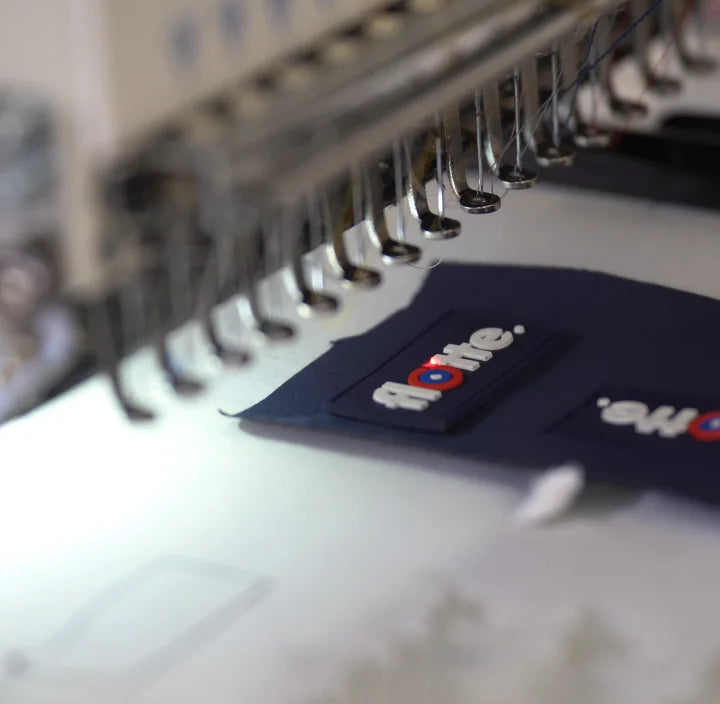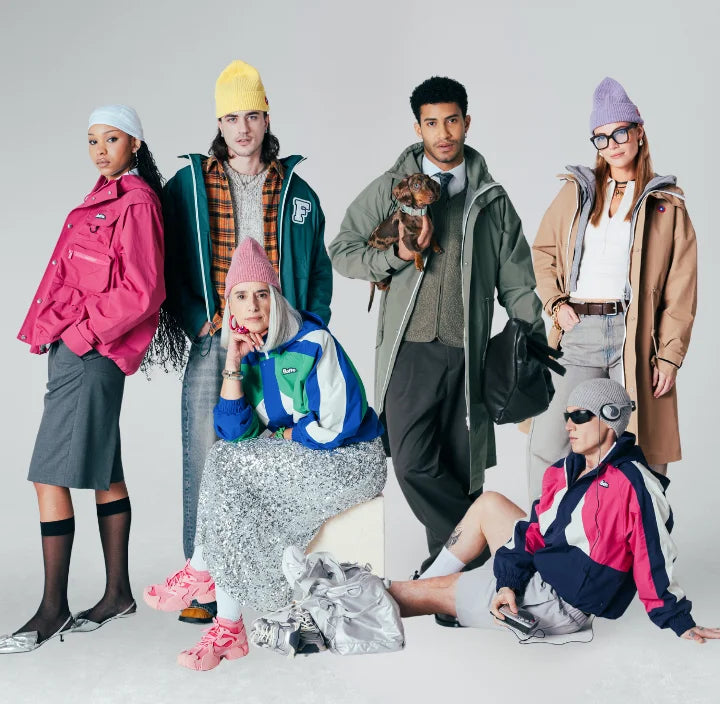Consommer plus responsable, c’est un bon début dans la démarche écologique, mais produire responsable, c’est encore mieux pour changer les pratiques communes.
Comment produire de manière responsable en tant que marque de mode ? Vouloir participer à la mise en place et au développement d’une mode éco-responsable est un beau projet, encore faut-il pouvoir le réaliser ! À ce niveau-là, les entrepreneurs et leurs idées novatrices ont toute leur place sur un marché où règne aujourd’hui plus que jamais la fast fashion.
L’un des points clés pour créer une ligne de vêtements responsable et durable, c’est sans doute le choix des partenaires. Et bien oui, parce qu’une marque ne se fait pas toute seule, les vêtements nécessitent des matières premières, des tissus, des savoir-faire spécifiques pour être conçus et développés. C’est donc à cette étape que beaucoup se joue quant à la direction que décide de prendre une entreprise.

LES CHOIX DE FLOTTE POUR UNE MODE RESPECTUEUSE ET ÉCO-RESPONSABLE
Dupont Sorona : tenir chaud en préservant les animaux
Si vous nous connaissez un petit peu, vous savez qu’on développe plusieurs produits, plusieurs styles, plusieurs coupes… Et que nos vestes imperméables sont fabriquées en tissus recyclés. Parmi nos gammes de vêtements, on trouve aussi des parkas doublées, des doudounes sans manches ou encore des doudounes réversibles.
Pour vous tenir chaud, nos doudounes réversibles sont rembourrées d’un duvet d’origine végétale appelé le Sorona, fabriqué par l’entreprise Dupont.
Le Sorona, c’est quoi ?
C’est une fibre de polyester pensée pour remédier à l’utilisation de plumes, et plus largement de fibres d’origine animale, dans le rembourrage de nos vestes et manteaux. Elle est faite à partir du glucose de maïs et est donc constituée à 37% de fibres d’origine végétale. Cette nouvelle fibre plus responsable a été développée par l’entreprise Dupont dans les années 2000 lorsqu’on a commencé à prendre conscience de l’impact des matières synthétiques sur l’environnement. Le Sorona se veut être une alternative aux matières comme l’élasthanne qui, elle, est une matière largement controversée pour son impact environnemental.
La fibre Dupont Sorona est aussi douce, résistante et isolante que l’élasthanne. Mais encore mieux, grâce à sa fibre végétale, elle sèche bien plus vite que les vêtements à fibre synthétique, elle ne se froisse pas et ne bouloche pas comme on peut en avoir l’habitude avec d’autres matières. Cerise sur le gâteau : l’humidité s'évacue rapidement à travers la fibre Sorona en comparaison à des duvets d’origine animale.
À l’inverse des matières synthétiques, la fibre Sorona présente une résistance aux UV qui permet de conserver des couleurs éclatantes aussi longtemps que possible et qui augmente du même coup la durée de vie et la qualité des vêtements.
Cette matière récente est donc une alternative de taille pour éviter d’utiliser des matières d’origine animale, tout en gardant les mêmes propriétés, voire en en ajoutant des meilleures. Si cette fibre ne possède pas un impact zéro non plus, sa fabrication ne réclame pas de produits pétroliers et elle nécessite 30% d’énergies non renouvelables en moins que pour la fabrication du nylon. Toujours en prenant pour exemple la fabrication du nylon, créer du Sorona réduit de 63% les émissions de gaz à effet de serre.
En bref, le Sorona s’est présenté comme une véritable solution dans notre quête de réduction d’impact environnemental, et surtout dans notre démarche de protection des animaux. On a à coeur de produire une mode éco-responsable, mais aussi de se montrer respectueux envers nos amis les bêtes. Du coup, on choisit nos partenaires avec attention.
Pure New Wool : concevoir éthiquement
Toujours dans cette optique de choisir des matières respectueuses envers l’environnement et les animaux, nous avons choisi de travailler avec l’entreprise écossaise Mackie pour la fabrication de nos bonnets.
Entreprise spécialisée dans la confection d’accessoires en laine, chauds et de qualité, elle dispose d’une large gamme de fils, de nombreuses couleurs et plusieurs types de matières premières. Nous avons choisi de nous tourner vers la Pure New Wool qui est une laine certifiée Woolmark.
Woolmark, ça veut dire quoi ?
➡️ C’est une certification qui assure notamment la qualité, la durabilité, la résistance au lavage et la composition de la laine certifiée.
Si nous avons choisi la laine de mouton, c’est pour son caractère renouvelable. Contrairement au pelage des angoras qui leur est arraché de manière blessante et très peu éthique, celui des moutons est obtenu par une tonte nécessaire à leur bien-être. Peut-être en avez-vous déjà entendu parler, mais les moutons doivent être tondus environ une fois par an pour être bien dans leurs baskets. Sans ça, ils seraient recouverts de leur laine abondante et ne pourraient plus vivre correctement et librement.
La laine de mouton est donc une matière entièrement renouvelable, une fois tondue, elle repousse. Et encore mieux, une fois utilisée pour confectionner des vêtements bien chauds pour nous, humains sans pelage, elle reste une matière qui dure dans le temps. Soit en étant recyclée dès lors qu’elle ne s’avère plus utile pour son détenteur, soit en se revendant. Elle fait aussi l’objet de dons, se voit réutilisée sous une autre forme ou par une autre personne. En bref, c’est une matière qui crée des vêtements durables et intemporels, sa valeur est incontestée.
En provenance directe du dos des moutons, la laine est une matière totalement naturelle qui s’inscrit à part entière dans la biodiversité, elle est biodégradable, tant dans la terre que dans l’eau. Puisque ce n’est pas une simple matière synthétique non recyclée, elle ne laisse pas de déchets microplastiques dans la nature.
Nous nous sommes donc tournés vers la laine, et particulièrement la Pure New Wool, pour vous assurer une qualité au top et pour rester fidèle à nos valeurs.
Voilà, on vous a tout dit sur nos choix de parcours, de partenaires et de valeurs. Flotte a toujours eu à cœur d’établir un changement à son niveau, de participer au développement d’une nouvelle mode plus respectueuse de l’environnement et de la biodiversité, et c’est avec tous ces petits pas que notre poids pour cette cause grandit de plus en plus.























Laissez un commentaire